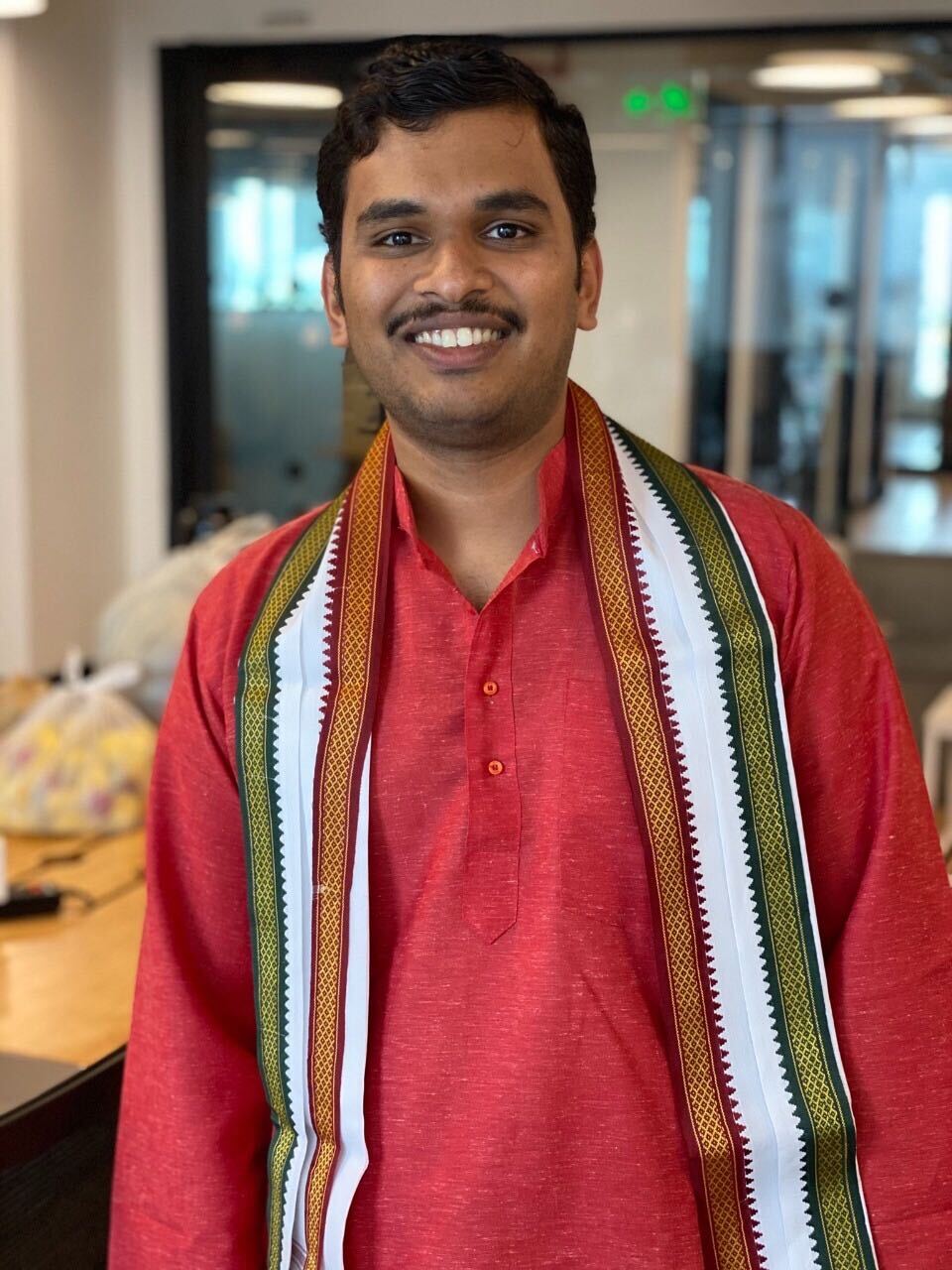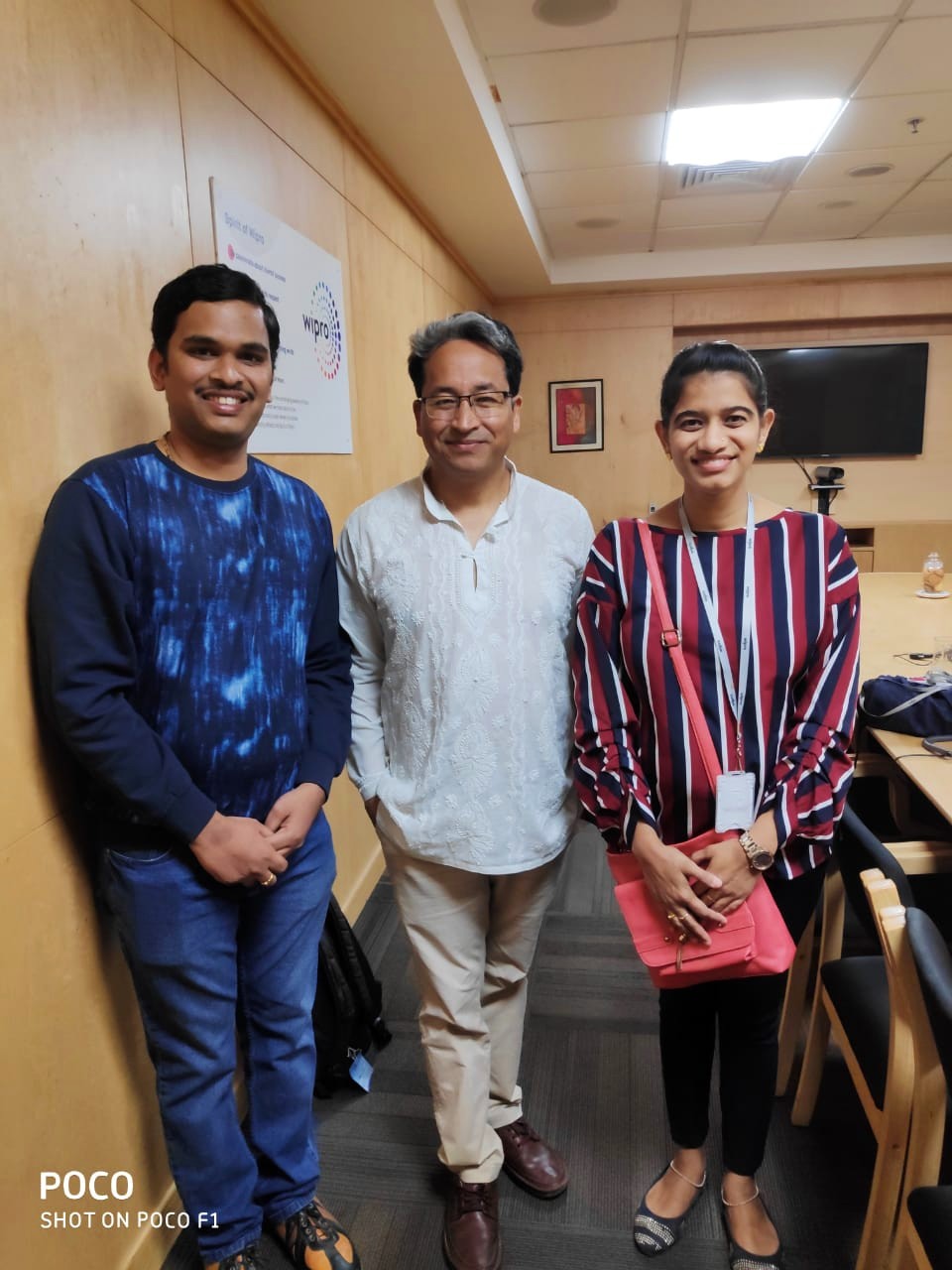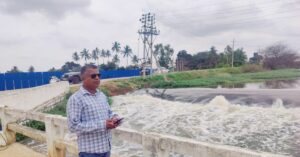Bengaluru Man’s Idea Helps Apartments Save Rs 50,000 in Water Bills Every Month
To date, more than 30 apartment complexes in Bengaluru have adopted Ganesh’s RWH system.

In the summer of 2018, five borewells of Metropolis Gurukrupa, a residential apartment complex in Begur, Bangalore, ran dry. The option, then, was to buy tanker water like most of Bangalore does. Needless to say, that would mean suspect quality of water and added expense to residents. That was when one enterprising resident took matters into his own hands.
“I began by analysing what had gone wrong. Why did we lose all the bore water? Using optical fibre analysis, we checked the groundwater level and noticed it had dropped from 1000ft to 3000 ft. This was due to a lake rejuvenation project taken up by the government at Begur lake, which was about five km away from our residential complex. This caused a chain reaction of drought in many areas around that lake,” says Ganesh Shanbhag, who spearheaded a rescue mission.
Ganesh is a native of Hubli and resides in Metropolis Gurukrupa. He works with a Bangalore-based startup and cares deeply about the environment. To provide a steady supply of water to the residents in his apartment, he decided to tap into a readily-available source — rain.
Initially, many residents were reluctant as they were under the impression that installing a rainwater-harvesting (RWH) system would be expensive. This led to him taking up the project by himself along with other like-minded residents.
Today, the apartment has successfully built a rainwater-collection system and has managed to convert two lakh liters of rainwater into potable water. At minimal cost.
A Crisis
Initially, as a quick solution to the problem, the apartment complex switched to purchasing water from private tankers and spent around Rs.50,000 that month for usage of 88 houses. This proved expensive, and Ganesh wanted to find a permanent solution to this.
“Using a rain gauge, we noticed that the city received 1300mm of rainfall that year, which is sufficient for 80 per cent of the city’s needs. But with large areas rapidly being concreted, rainwater seeps into sewers, instead of into the soil. RWH is not a new concept. Residential complexes with more than 40 houses are mandated to have an RWH and sewage treatment system. Though our complex has the provision for it, there was no RWH system,” he says.
With the support of the Residents Welfare Association, Ganesh identified a handful of other residents willing to spend their weekends on building this system.
Design, Build, Test
It began by understanding the physics behind the system. To do this, Ganesh visited many homes with RWH systems already installed and understood how it works. He noticed that many were using pop-up filters, which incurred a high operating cost.
Once he was sure about the working of the system, Ganesh placed an order for necessary raw materials such as pipes and filters from AliExpress, an e-commerce platform.
He says, “The residents agreed to pitch in money, and we spent only Rs.20,000 to procure the raw material. I also purchased disc filters over pop-up filters to reduce the operating cost. The only difference between the two is that pop-up filters require extensive maintenance, while disc filters require manual cleaning. This means there is zero operating cost if done by residents. The raw materials were delivered to us on February 13, 2019, and we immediately got into action.”
Ganesh mapped out routes to channel the water from the terrace to four underground tanks designated to collect rainwater. Then, each tank was interlinked with one outlet leading to a pressure pump, and another leading to a recharge pit.
“The water from the terrace was channelled through several outlets and streamlined into two pipes fitted with five layers of the mesh filter. These filters would hold back solid waste and other impurities. There are multiple layers of mesh to ensure flow so that if one was clogged, the other would hold back the dust,” says Ganesh.
From there, it was sent to four underground tanks with a capacity of 50,000 litres each. The tank was fitted with a pressure pump that took the water to the overhead tank.
“The pump’s outlet is fitted with the disc filters that ensure fine cleaning of the water, making it potable,” says Ganesh.
If all the four tanks were up to their capacity, the excess water was allowed to overflow into a recharge pit, which channels the water into the ground thereby increasing the groundwater levels.
Saving Water. And Money
The system was ready by the end of the same month, and in March 2019, when the city received rains, the system proved to be successful.
“We bought water for February, but in March and April that year, we did not, and we managed to save Rs. 2,00,000. With the support of the association and the residents, we bought some more raw material that would check the pressure of the water, and control the pressure at which it would go through the pipes,” says Ganesh adding that the design and model was his idea, but was successfully implemented with the help of other residents, who were also engineers, along with a plumber employed at the apartment complex..
Ganesh says there is no fixed price to install the system, and that it would depend on the size and number of residents in the apartment. He does, however, quote an upper limit of Rs 3,00,000 as a ballpark figure.

He says, “I don’t charge any money for the work I do, the Rs. 3,00,000 would be the investment to purchase necessary raw material. I consider this a hobby, and would like to work with other apartments who have faced water crises and want to implement this.”
Replicating Success
GR Srinivas Apartment complex that houses 135 residents faced a water shortage last year owing to their dried up borewells. They were forced to buy tanker water through the summer months, which resulted in a hefty bill for each resident.
While looking for solutions, they approached RWH system providers and builders to install the system but did not follow through as they were expensive.
Srivibha Jeevarathinam, an office bearer in the Resident Welfare Association of GR Srinivas Apartment complex in Bangalore says, “After reading a news article about Ganesh, he inspired us to do the same for our complex. With his advice, and with the help of electricians and plumbers in our complex, we installed the system within one month. Though we continue to depend on water tankers, the months when there is ample rainfall, we do not, and this has reduced our expenses considerably.
To date, more than 30 apartment complexes in Bengaluru have adopted Ganesh’s RWH system, and continue to reap the benefits.
If you’d like to get in touch with Ganesh to do something inspiring and sustainable for your own residence, do reach out to him at [email protected].
This story made me
- 97
- 121
- 89
- 167
Tell Us More
We bring stories straight from the heart of India, to inspire millions and create a wave of impact. Our positive movement is growing bigger everyday, and we would love for you to join it.
Please contribute whatever you can, every little penny helps our team in bringing you more stories that support dreams and spread hope.



















